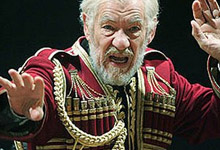
Tracks
The King's Will: "Love, Against Homophobia"
(2011)
By George Bass | 16 May 2011
Take Faithless,-the million-selling, softly-rapping dance act, and imagine that vocalist Maxi Jazz went to Eton instead of working his way through pirate radio. Would “I can’t get no sleep” from smash hit “Insomnia” still sound the same when translated to “I’m really having the most terrible trouble nodding off”? It’s a theory Musa Okwonga and his poetronica unit the King’s Will are anxious to test. They’re even more anxious to repel listeners by describing themselves as “poetronica”: a genre name so infuriating it should be concreted and dumped at sea with Jedward. But surprisingly, Okwonga’s material escapes his own labeling, saved by luscious electronic arrangements and some sharply spoken-word fury on par with angry Stephen Fry (RIP 1995). And what better way to get in both Mr. Fry and Maxi Jazz’s good books than by tackling the legacy of Clause 28, and turning centuries of homosexual persecution into one motherfucker of an Ecstasy drop moment!
Okwonga lets cohort Giles Hayter (seriously, could these blokes sound any more like they’re heirs to a hotel empire?) take the lead on “Love,” pouring in layers of foggy synth and waiting a long twenty seconds before he says his piece. “To some people, my love is somewhat alien / When he comes up, they start subject-changing and… / In some states, he’s seen as some contagion / In those zones, he stays subterranean,” he projects in syllables that are either richly exaggerated or simply from a windpipe that’s very very rich. Hayter, meanwhile, lets his ghost noises swirl, springing into action at two minutes in when he detonates a monster house beat. Suddenly it feels like midnight at an old Orbital gig, and Okwonga’s left exclaiming “My love!” over and over as if someone’s up-ended his breakfast table, scattering Frank Cooper marmalade all over the cork floor. It’s an intriguing, largely effective formula, though whether or not it can sustain their nine song album is another matter. It definitely trounces previous attempts at combining electronics with public school speech, though, which came to a head when Mike Skinner got Scarface-high and hired conference managers to round off this.





